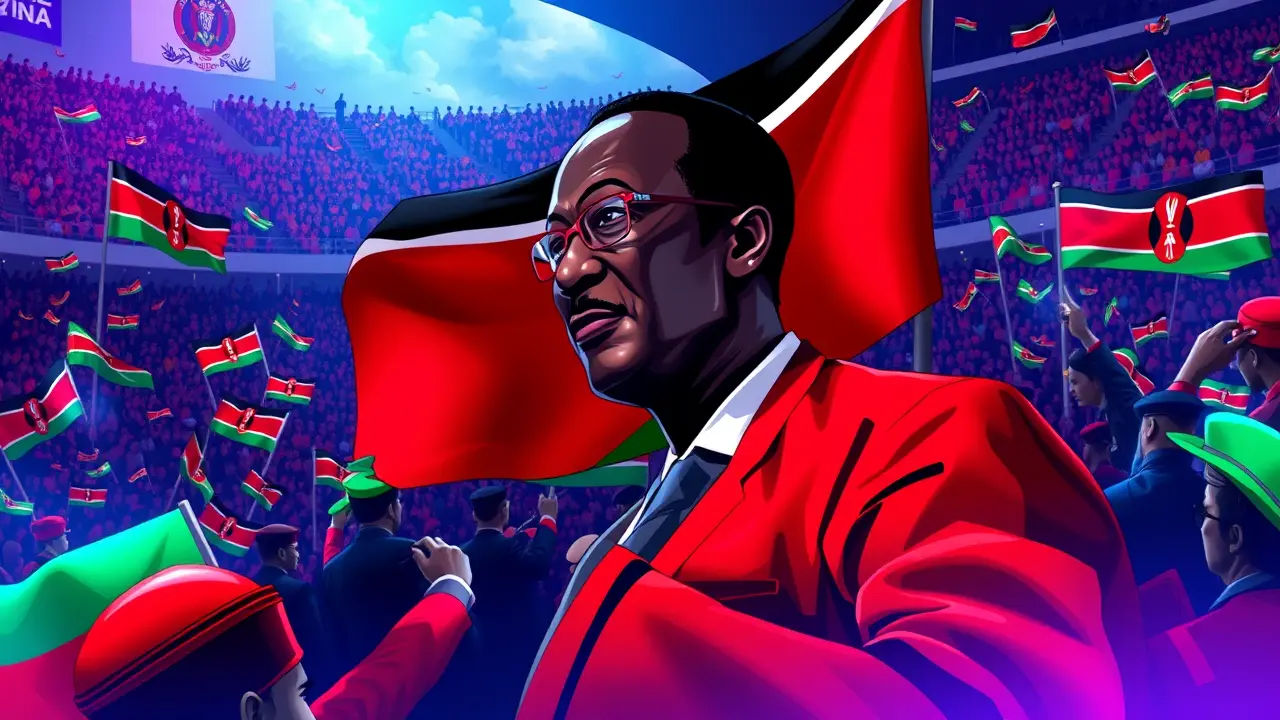Thousands Attend Kenyan Ex-PM Odinga's State Funeral
A sea of red, black, and green flooded Nairobi’s Nyayo National Stadium, a tide of collective grief and national pride washing over the stands as thousands defied the equatorial sun to pay their final respects to former Prime Minister Raila Odinga. This was not merely a state funeral; it was a raw, living tableau of a nation’s soul, a moment where the personal and the political became inextricably fused.The air, thick with humidity and the scent of bougainvillea, vibrated with the low hum of a mournful dirge, punctuated by the stark, sharp cracks of a 19-gun salute that echoed across the city, each report feeling like a period at the end of a long, tumultuous sentence in Kenya’s history. Mourners, a cross-section of the nation from elderly veterans of the struggle for multi-party democracy who moved with a slow, deliberate grace to university students clutching well-thumbed copies of Odinga’s political memoirs, held aloft not just the national flag but portraits of the man they called ‘Agwambo’ or ‘Jakom’, the enigmatic commander.Their faces, glistening with sweat and tears, told a story more profound than any official eulogy could capture—a story of hope deferred, of battles fought, and of an enduring, almost mythical belief in a figure who embodied resistance for decades. The scene was a powerful testament to his complex legacy; a firebrand who spent years in detention under the Moi regime, a perennial presidential contender whose disputed losses in 2007 ignited a wave of ethnic violence and in 2017 led to a historic, though short-lived, Supreme Court annulment, and finally, a statesman who entered a fragile ‘handshake’ truce with his erstwhile rival, President William Ruto, who now sat solemnly on the dais, a living symbol of Kenya’s volatile political reconciliations.Analysts watching the global news wires from London to Washington D. C.understand that Odinga’s passing is not just the closing of a chapter but a fundamental seismic shift in the East African political landscape. His role as the charismatic leader of the Luo community and the de facto figurehead of the political opposition leaves a vacuum that threatens to unravel the delicate ethnic and political alliances that have precariously held the nation together.The question hanging heavy in the air, almost tangible amidst the waving flags and soaring tributes, is what happens now? Without Odinga’s towering presence to unify the opposition, will the coalition fracture into competing factions, each vying for a piece of his legacy? Or will his death, in a tragic twist, forge a new, more cohesive political force born from this shared moment of national mourning? The consequences ripple far beyond Kenya’s borders, potentially destabilizing regional security partnerships in the Horn of Africa and affecting economic confidence in one of the continent's most dynamic hubs. For the millions watching, this funeral was more than a farewell; it was the poignant, uncertain prologue to Kenya’s next political era, a nation standing at a crossroads, its future as unpredictable as the late afternoon rain clouds gathering on the horizon.
JA
Jamie Larson123k2 days ago
wait what is even happening rn the energy in that stadium is wild tho ngl
0
JA
Jamie Larson123k2 days ago
so much history in one moment it's kinda overwhelming tbh. but all this talk of a 'vacuum'... like, what actually happens now? idk maybe i'm overthinking it
0
